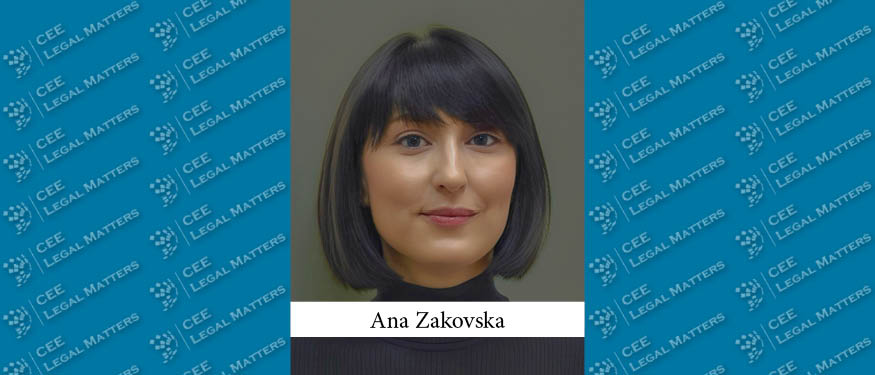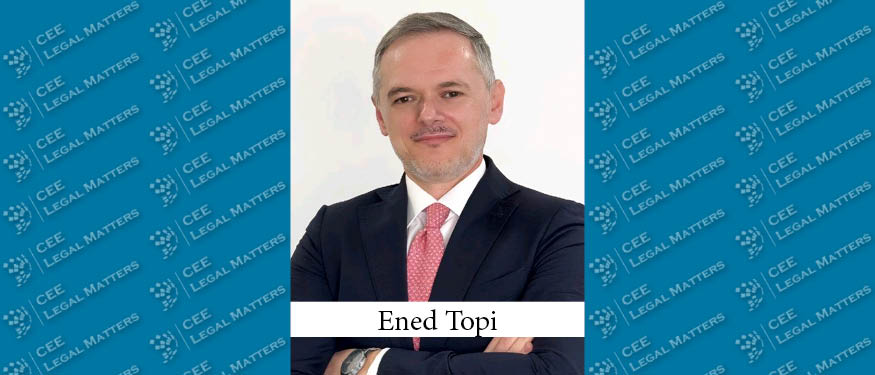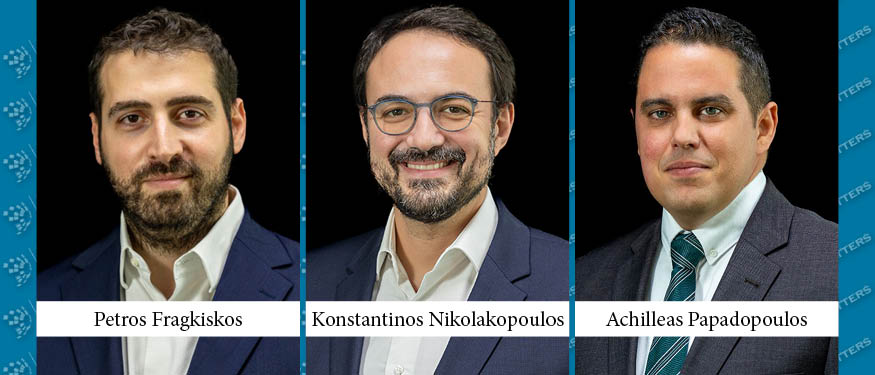IT Labs Group General Counsel and DPO Ana Zakovska discusses her transition from private practice to in-house roles in the ICT sector, the evolving nature of legal work, and how privacy and AI are shaping the industry.
CEELM: Tell us a bit about yourself and your career path leading up to your current role.
Zakovska: I’ve been in the legal field for nearly 20 years, mostly in the ICT industry, though I started out in private practice. I transitioned in-house, taking up an opportunity in the telco services industry, also passing the bar shortly after. The shift built my knowledge of the ITC sector. Since 2011, I have provided corporate legal expertise in the software services industry. I served as GC twice – first at Seavus, the largest ICT company in the country and one of the largest in the region at the time, where I was also the lead in-house counsel during its acquisition. After that, I took a break to focus on my battle to become a mother, the most rewarding shift in my life. I returned to work through a consulting role with IT Labs, which grew into a GC position.
Though I’m based in Skopje, most of my work is international. I collaborate daily with business stakeholders and various counsel across jurisdictions, and I’ve come to appreciate that being a great in-house lawyer isn’t about knowing everything – it’s about building strong collaborations, adapting to new cultures, and staying curious.
CEELM: What was the biggest shock when transitioning to the in-house world? And what was the most pleasant surprise?
Zakovska: The biggest surprise was just how different in-house is from private practice. Law school, back then, was mostly theoretical, and when I started out in private practice, work followed mostly the judicial-led, court case processes. Transitioning to in-house changed the rhythm completely – the pace was faster, the flexibility greater, and the range of responsibilities wider.
The positive side was the flexibility, informality, and the chance to build tailored processes that support the organization and its teams, helping the company excel in its growth. The thing that took me by surprise was the workload and volume of responsibilities and their legal diversity in the corporate setting. There was so much you had to tackle. You’re not just handling legal processes – you’re supporting the business, managing cases to not reach litigation and, if they do, to be on the win side, you’re helping shape strategy, the list goes on.
Depending on the industry, you can find yourself navigating anything from software to meatpacking.
I thrive on that. In tech-heavy environments, where most colleagues aren’t from legal backgrounds, I find it especially rewarding to bridge that gap and help them move with confidence.
CEELM: What best practices did you identify over time in terms of structuring a legal department?
Zakovska: Right now, we keep it relatively lean. In my previous role, the department varied in number, but was always relatively small, which is quite typical in industries like ours. It depends on your use of external counsel, alternative services, use of tech, and what you want to achieve. It also depends on the business organization and budgeting. Often, when the load is great, but teams are smaller, it can be super challenging. This is where business leadership should be aware and provide a seat at the table for the leaders managing legal affairs, to give them the possibility to learn how the business and organization are operating. That is the only way companies can ensure their advisors grow and develop into business partners as well, abandoning the traditional perception of “the legal department” and unleashing its full potential as a unit that also drives and contributes to business growth.
Our goal is always to strike a balance: use internal resources for ongoing, wide range of inquiries, and bring in specialists for niche areas or jurisdiction-specific matters. An exception to this would often be privacy compliance. In our industry, most in-house lawyers are generalists who can cover a wide range of topics – from employment and compliance to contract negotiations and corporate governance. But you shouldn’t build everything internally if you don’t have to. Outsourcing helps manage the budget and gives you flexibility. Using technology and embedding it in the legal department is also a major improvement for legal operations, which boosts company-wide collaboration with the legal department.
I’m also a believer that legal operations shouldn’t always comprise strictly legal roles – project leads, office coordinators, and admin staff play a crucial part, especially when legal teams are small.
CEELM: How do you decide whether to outsource a legal matter or keep it in-house?
Zakovska: It depends on the nature of the matter. If a process requires specific jurisdictional expertise or local verification, then outsourcing is usually the wisest choice. In litigation, for instance, we always work with external counsel – there’s just no way to do that efficiently in-house, and across borders, if you have a small team. I’m also a strong believer in using alternative legal service providers, as well as introducing alternative dispute resolution solutions when negotiating multinational contracts. Those seem more expensive upfront, but they can be faster and more efficient in the long run. A court case can drag on for 10 years, in many CEE countries or around the world, while an arbitration may resolve a dispute in a fraction of that time. Cost optimization isn’t just about today’s fees, it’s about the total cost of resolution.
CEELM: What do you look for when selecting external counsel?
Zakovska: It’s a strategic decision. Of course, cost is a major factor, but so is the type of legal service you need. For large-scale M&A work, a global law firm might be best. For something more specialized or fast-moving, a boutique firm might be more agile and better suited. I always run an RFP process. I look at the actual offers in detail, but I also speak to the candidates personally. It’s important to understand how they think, how prepared they are, see their flexibility range, and whether they understand our business. That personal interaction often tells me more than any pitch deck.
CEELM: What has been keeping you and the legal department busy over the last 12 months? What’s on your radar for the next 12?
Zakovska: The past year was all about reshaping our offering and building our workforce expertise further, to better nest in our organization in the often-volatile world of software services, continuing our steady pace of further growth. Looking ahead, we’re shifting our focus to strategic partnerships, compatible with our robust, transparent, and dynamic culture that delivers stellar service. You can’t promote best practices externally if you’re not living them internally. One thing I’ve noticed is a shift in awareness levels around emerging technologies. When the GDPR came into force, hardly anyone understood its implementation at first, and what it took to achieve compliance. But with AI, it’s even more unpredictable – everyone’s using it, yet very few truly understand the risks. There’s a misconception that if a tool is free or accessible for wide global use, it must be safe or compliant, especially regarding privacy, IP, and security. That’s a huge challenge for legal departments and one we’re addressing head-on through our AI Governance policy, which we currently implement across our group.
CEELM: What challenges do you foresee for GCs in North Macedonia in the near to mid-term future?
Zakovska: I’m also on the management board of the Macedonian Association of Corporate Counsel, now also a member of ECLA. Through that network, we’ve been gathering input from our members, and a few recurring themes have come up.
Firstly, while our in-house community is growing, we’re still not as far along as some other jurisdictions. We’re an EU candidate country, and while our privacy laws are well-aligned with the GDPR, we don’t yet have national legislation on AI and cybersecurity. The progressive companies are implementing global trends in the absence of national legislation.
Privacy compliance stays in focus, and the new regulation on the prohibition of unfair trade practices is proving to be quite demanding in implementation, shaking up the private sector quite a bit.
Finally, as AI continues to evolve, GCs will need to understand both the risks and the opportunities. Legal departments must “sell” the value of secure, responsible AI use to management to get the tools and support they need. And since many legal departments are still small and overloaded, AI could be the key to staying lean while handling growing demands.
This article was originally published in Issue 12.3 of the CEE Legal Matters Magazine. If you would like to receive a hard copy of the magazine, you can subscribe here.














